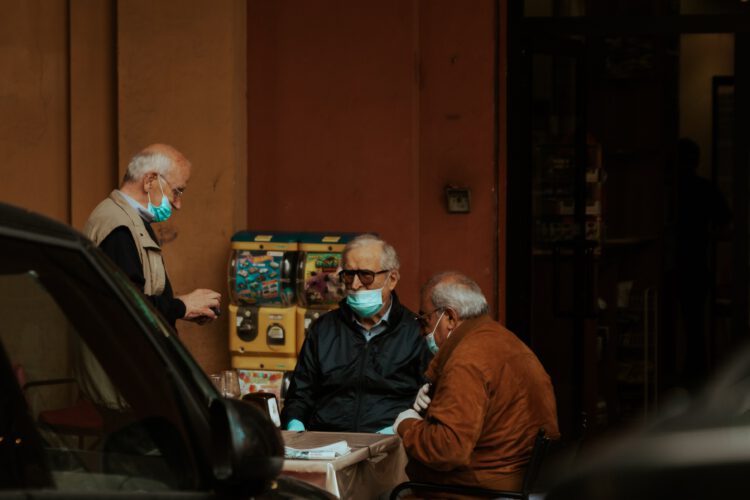There is no doubt that the entire world is living through an extreme period. Germany’s chancellor, Angela Merkel has said that this is the greatest crisis that Germany has faced since reunification… since the Second World War even. Emmanuel Macron continued the theme. Meanwhile, others took to arming themselves as if for war. Where this differs from war (at least in more recent memory) is that it is a truly global challenge. People and families from Iceland to the Pacific islands are, and will be, affected physically and emotionally. How they experience it, however, will vary form place-to-place and, even within the same place, from group-to-group and individual-to-individual.
The impacts these times will have on emotions, behaviour, and preferences, however, are not as clear cut as might seem. While that might be surprising to say, let us return to the war metaphors for a moment. Wars are often the domain of acrimony between individuals and between organised groups of individuals. They cause irreparable damage to physical and human capital. And yet, in a surprisingly large number of settings, those who live through them seem to choose to be nicer to other people afterwards, even though one would probably expect the opposite to hold true.
On the other hand, the supporters of winning sports teams (because sport is another kind of war, after all) might not be so egalitarian, even though they have much more to be egalitarian about… For every person arming themself to the teeth, or driving around to hoard toilet paper, is an Italian singing from a balcony to keep morale high; Spaniards applauding the emergency services; and an Irish president (and an accomplished sociologist and writer) bringing comfort to his people through the medium of poetry.
Predicting responses to an unprecedented crisis
How these, apparently contrasting, responses aggregate up and average out during and after the crisis are, therefore, difficult to predict. Yet, how they do will likely have profound effects on what happens in the coming weeks, months and years.
While there are many ways to try to understand these things, we believe that understanding how people on a personal level are directly and indirectly affected by crises is a good place to start. It’s maybe not quite citizen science by standard definitions, but our aim is to adhere as closely to these principles as possible. And to do so in real time. As circumstances change or timelines elongate, so likely will your experiences and perceptions. How you feel now might not be how you feel in the coming weeks or months. And all of those feelings might be different to how you remember these events in years to come.
Our aim is to give anyone and everyone a voice, by providing the chance to tell us how you perceive this situation, the behaviours you’ve undertaken and how this might differ from how you felt and acted before. The more voices we hear, we hope, the more stories we can tell from the data. And the more accurately we can understand what you, as individuals, families and groups, are telling us. Based on the data thus generated, the better the policies will be to help people recover from trauma and traumatic events — to adjust once more when this nightmare will, hopefully, have come to an end one day.
Making sure every experience is counted
Within reason at least, there aren’t really any right or wrong ways to experience a time that is unprecedented in the living memory of almost every individual who will read these words. How you as an individual experience this situation is not, necessarily, the same as how another experiences it, yet that does not mean your experience and associated emotions are more or less valid. How people of different groups — ethnic, religious, nationalist, socioeconomic or, even, simpler groups such as sports fans or neighbours — experience the pandemic will not necessarily be the same. There are good reasons to think that individuals with different endowments will experience major shocks differently, and that different groups of people will experience the same set of circumstances in very different ways.
There is seldom a hierarchy in the ‘correctness’ of lived experiences. Rather we aim — insofar as we can with this sort of data and the sorts of capabilities that our group has — to give a voice to as many individuals, and groups, as is possible. This is your crisis; and it is also our crisis, as we too are living through it and are a part of the research environment. That is why we wish to (try at least to) understand life (and living) with corona. Not least because life with corona is, after all, still life and it will go on in some way or another during this crisis. And it will go on, too, after the crisis has come to an end. How life looks then, and how that compares to life now, and life before, are questions we feel are well worth asking.
By Dr. Ghassan Baliki, Professor Tilman Brück, Professor Patricia Justino, Dr.Neil Ferguson and Dr. Wolfgang Stojetz
This blog was first published in WiderAngle

